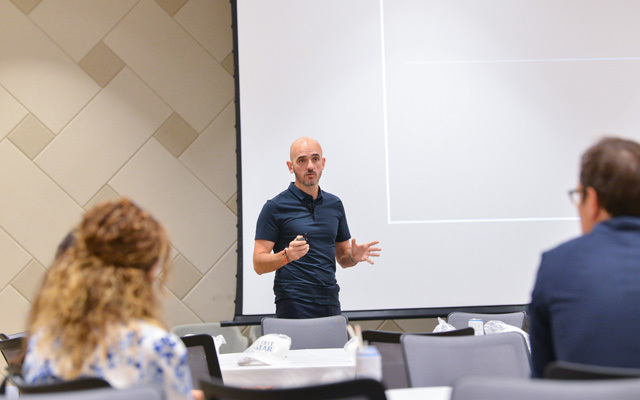Part 2 of ICCA’s workshop on Redefining Association Business Models: A Blueprint for Transformation, held in Bangkok on November 15, the final day of this year’s annual congress, focused on a five-step road map to develop strategies to create a platform business model for the industry.
Part 1, held on November 12, looked at the definition of a platform business model and the interactive session looked at “accessing the level of readiness to become platform business models”.

Part 2 identified the five steps of the road map as community design, growth, speed, tools and execution.
Session facilitator Oscar Cerezales, global executive vice president, MCI Group, created table discussions around the pros and cons of different association business models; how platforms connecting an association’s product can help them grow; the importance of data governance, systems integration, customer acquisition costs, and lifetime value.
In reiterating the definition of a platform business model and giving the example of what Uber does, Cerezales said the peer-to-peer connections of associations and their structure made adapting to change more challenging.
However, he noted associations were “super resilient because they are a platform business model” and the aim of the two workshops was to help accelerate the process and look at the next steps of what ICCA can do after the Congress.
With the need to allocate limited resources, strategic growth had to be focused and associations would have to decide on one – whether it was market development, market penetration, diversification, product development, existing markets, new markets, existing productions or new products, he advised.
In the growth discussion exercise, Cerezales urged associations to visualise an existing product for tomorrow to create a platform business in 2030.
He identified fast-moving ones to include geopolitics, the regenerative economy, talent, multidisciplinary skills and societal change towards DEIB (diversity, equity, inclusion and belonging), impact and legacy.
Slow-moving impacts in the coming years included the new consumption paradigm, explosion of data volumes, fragmentation of the omnichannel, clash of industries, non-member hypergrowth.











